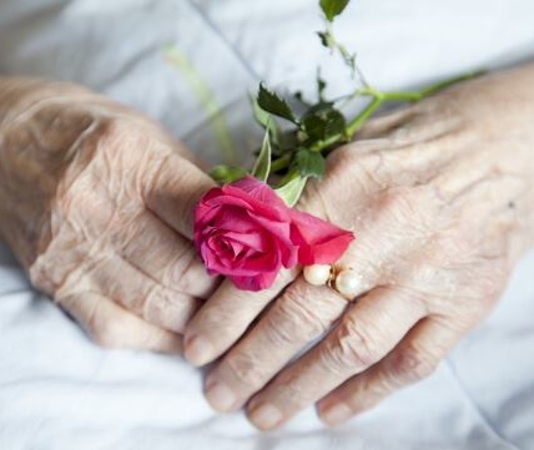Caregivers tasked with spending the final days, weeks, or months with a loved one with a terminal illness cope with many conflicting emotions.
“It’s OK to feel like, ‘I wish this person would just hurry up and die,’” said Lois Kelly, author of Be The Noodle: Fifty Ways to Be a Compassionate, Courageous, Crazy-Good Caregiver. “Many people reach that point. Don’t guilt yourself.”
Kelly became her mother’s primary caregiver in the final months of her mother’s life as she succumbed to cancer. One of six siblings, Kelly was the only one with a schedule flexible enough to allow her to move in with her mother to provide her elderly home care.
Some of the tips in Kelly’s book are humorous, others are sad, and many are practical – just like the reality of being there for someone facing the end.
“One day, really towards the end of my mother’s life – for the most part she just slept – she got up and said, ‘I feel great! Let’s have a martini on the deck!’” Kelly recalled with a laugh and noting it was 9:30 a.m. when her mother made this suggestion. “My sister and I helped her out on the deck, and it was a beautiful May morning, and we had martinis.”
Kelly’s mother only had enough energy for 15 minutes of this frivolity.
“It was such a joyful 15 minutes,” she said. “If we had been our organized and practical selves and stuck to a schedule, we would have missed out on one of the loveliest days she had left.”
She recommends other people in her situation say goodbye to schedules and hello to living in the moment.
“The person you are caring for, when they feel up to something, just do it,” she said. “The advice to my mother might have been to rest and not wear herself out, but what difference does it make now?”
For caregivers, each day is different. What can be very difficult one day can be much easier the next.
“There are good days and you go to the movies together and think, ‘Aren’t I lucky?’” she said. “Then there are bad days when physical scary things happen and you’re by yourself and you’re like, ‘I can’t deal with this!’”
To cope, she suggests family caregivers find someone – a friend, a neighbor, a pastor – to listen.
“Most hospice providers have social workers and that’s really great,” she said. “I remember one day, the hospice worker came in and said to me, ‘You need some help!’ I just needed to talk with somebody and get a 24-hour break.”
Kelly says respite care is important for caregivers as they cope with the emotional and physical challenges of the caregiving, especially if they are terminally ill. The break from the stress of care can be a full 24 hours, or just one hour – time enough for a walk.
Between the actual caregiving and managing the other people in her mother’s life, Kelly says she often felt like an air traffic controller (often cited as one of the most stressful jobs in America).
“I got really good at telling people she wasn’t able to visit with them,” she said, adding she would still explain a visitor’s importance to her mother as she turned them away.
The flip side of this was dealing with denial – not her mother’s, but well-meaning friends and family who behaved as if death were not imminent. She recalled an uncle arriving very late for a holiday gathering. When Kelly scolded him and said, “She’s dying,” he replied, “Don’t talk that way.”
For all the ups and downs, Kelly says people should not be afraid of what’s coming.
“Don’t miss it,” she says of the chance to spend time with a loved one who is dying.
The Mayo Clinic also has a helpful page on how to support a loved one with a terminal illness: http://www.mayoclinic.com/health/grief/CA00041.





